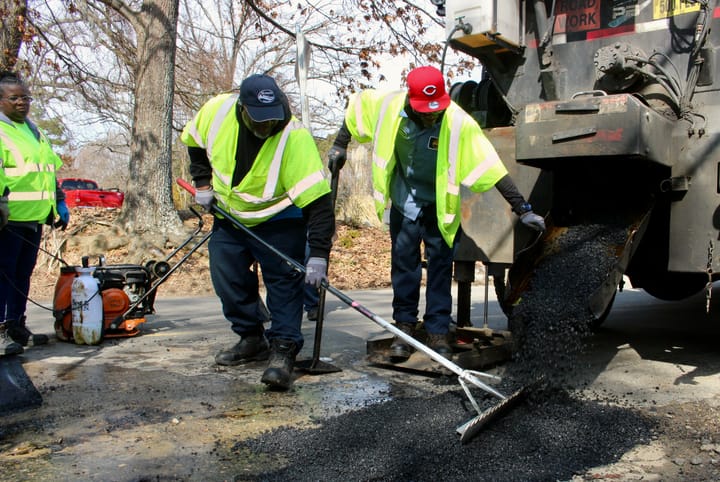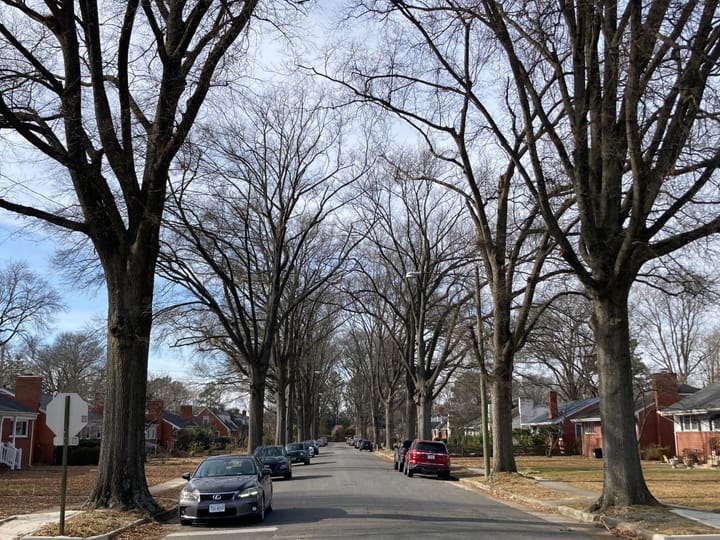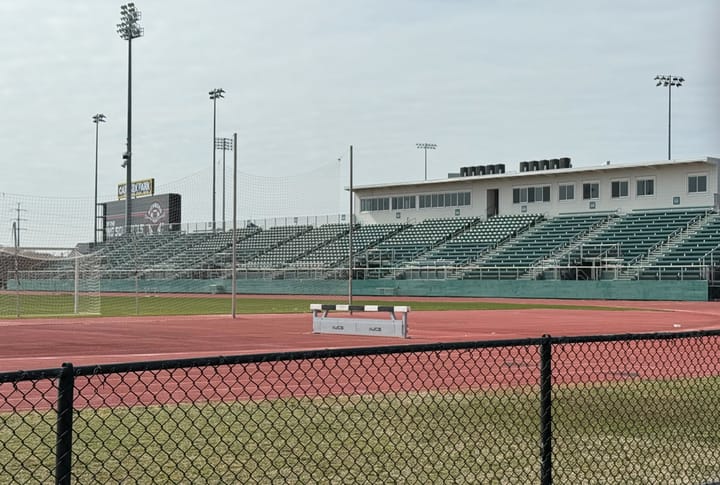Regional composting has arrived in Richmond. Here's how it works.
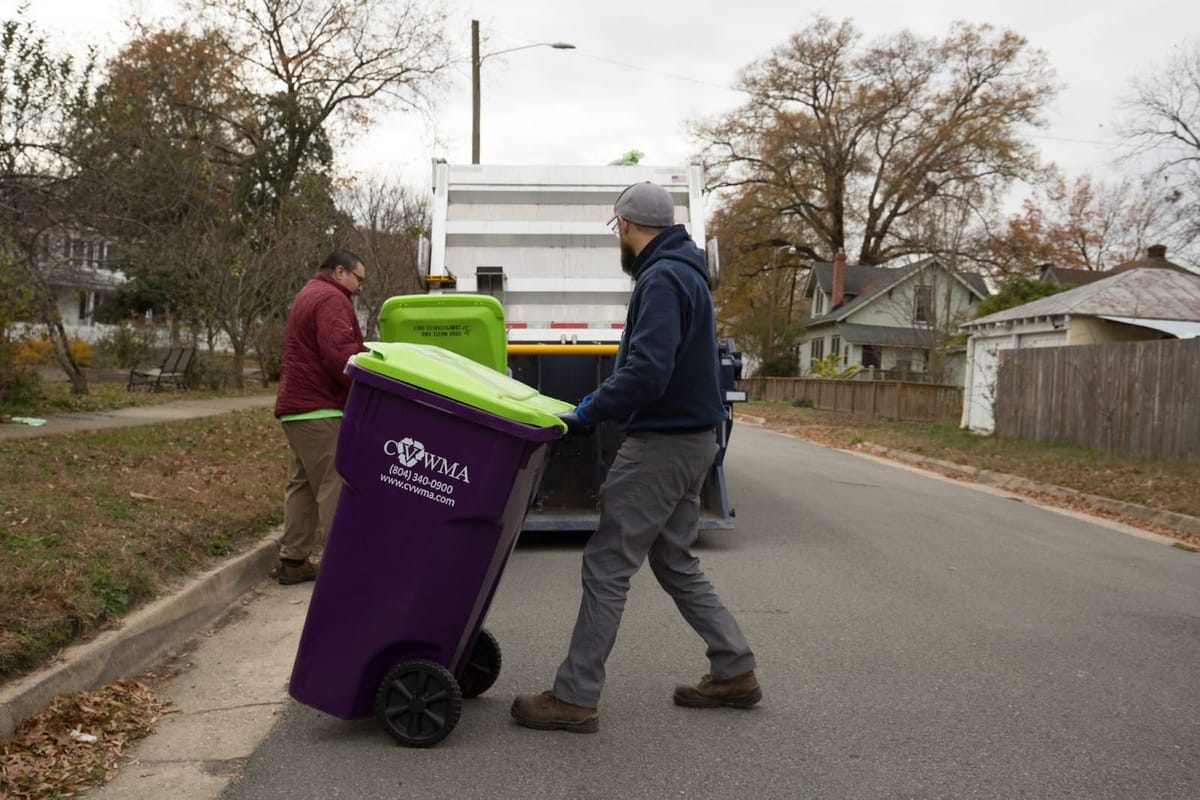
This Thanksgiving marks a milestone in the world of waste management in the City of Richmond: you can now compost all of the waste from your holiday dinner, including the turkey.
A little more than three years after the City began its in-house Richmond Compost Initiative in August of 2022, the city has signed on to a regional composting initiative alongside Chesterfield and Henrico counties facilitated by CVWMA, the public service authority established in 1990 which facilitates the city’s curbside and drop-off recycling. The new composting program includes an expanded array of items acceptable for composting. Up until this point, Richmonders could only divert food and vegetable scraps from landfills via the city composting initiative.
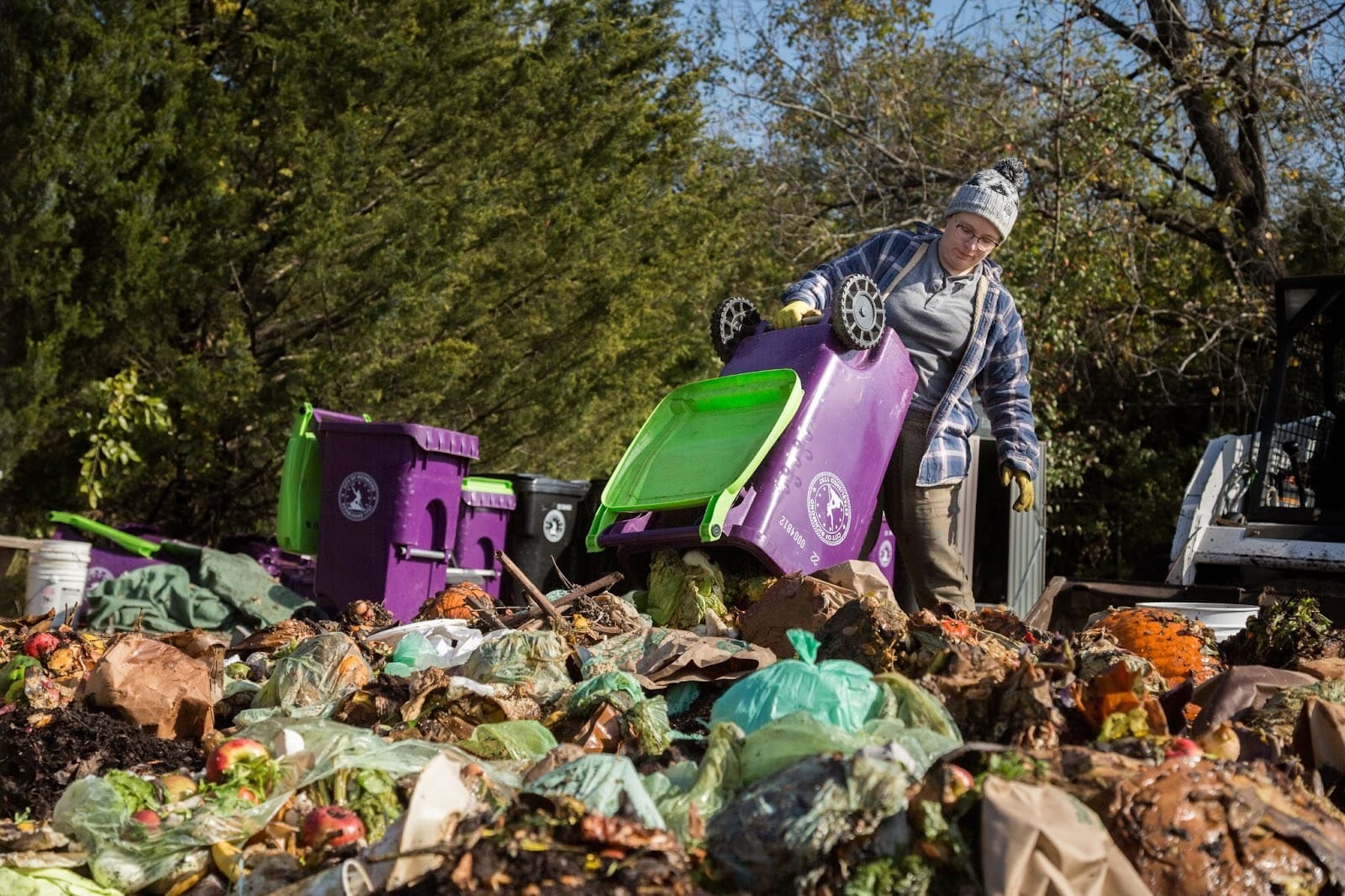
The importance of composting
About a third of food in the U.S. is wasted. As this food degrades, it releases methane, a greenhouse gas which is “more than 28 times as potent as carbon dioxide at trapping heat in the atmosphere.” according to the U.S. Environmental Protection Agency.
One of the ways to reduce methane emissions is to compost food scraps instead of throwing them away.
Composting is a controlled process where microorganisms break down sources of nitrogen (‘greens’, i.e. food waste) which are combined with sources of carbon (‘browns’, i.e. yard waste).
The process results in a nutrient-rich, soil-like humus that can be used as fertilizer in gardens or as part of soil amendment.
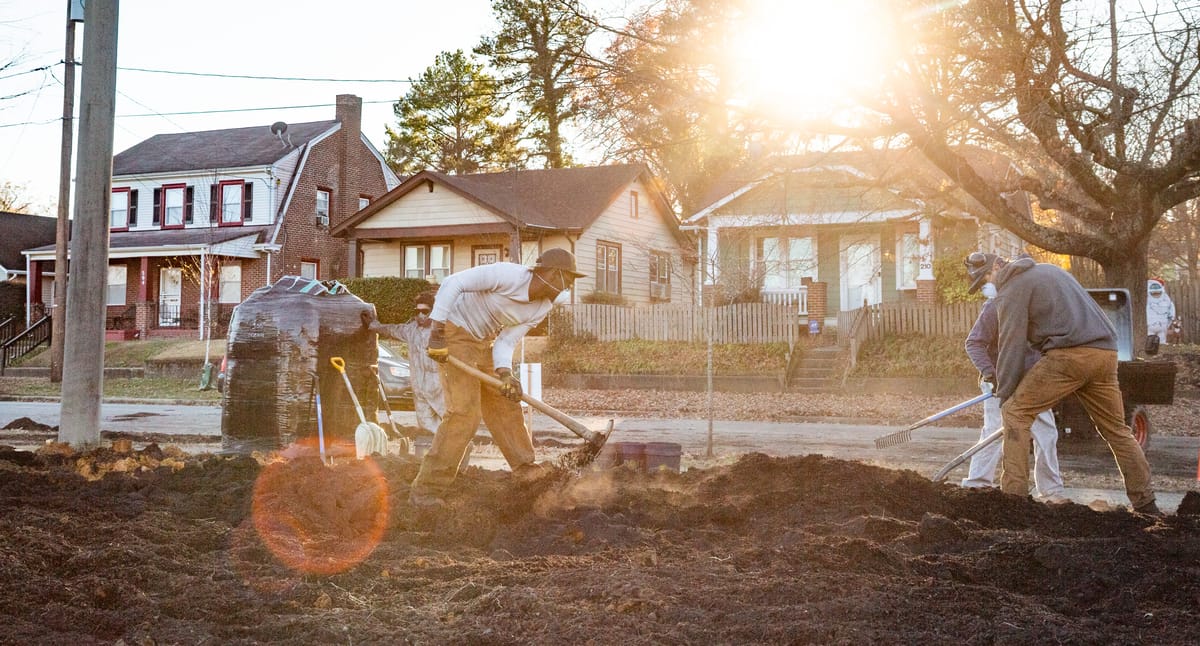
In addition to providing nutrients, compost increases the capacity of soils to hold on to water, decreasing runoff into waterways.
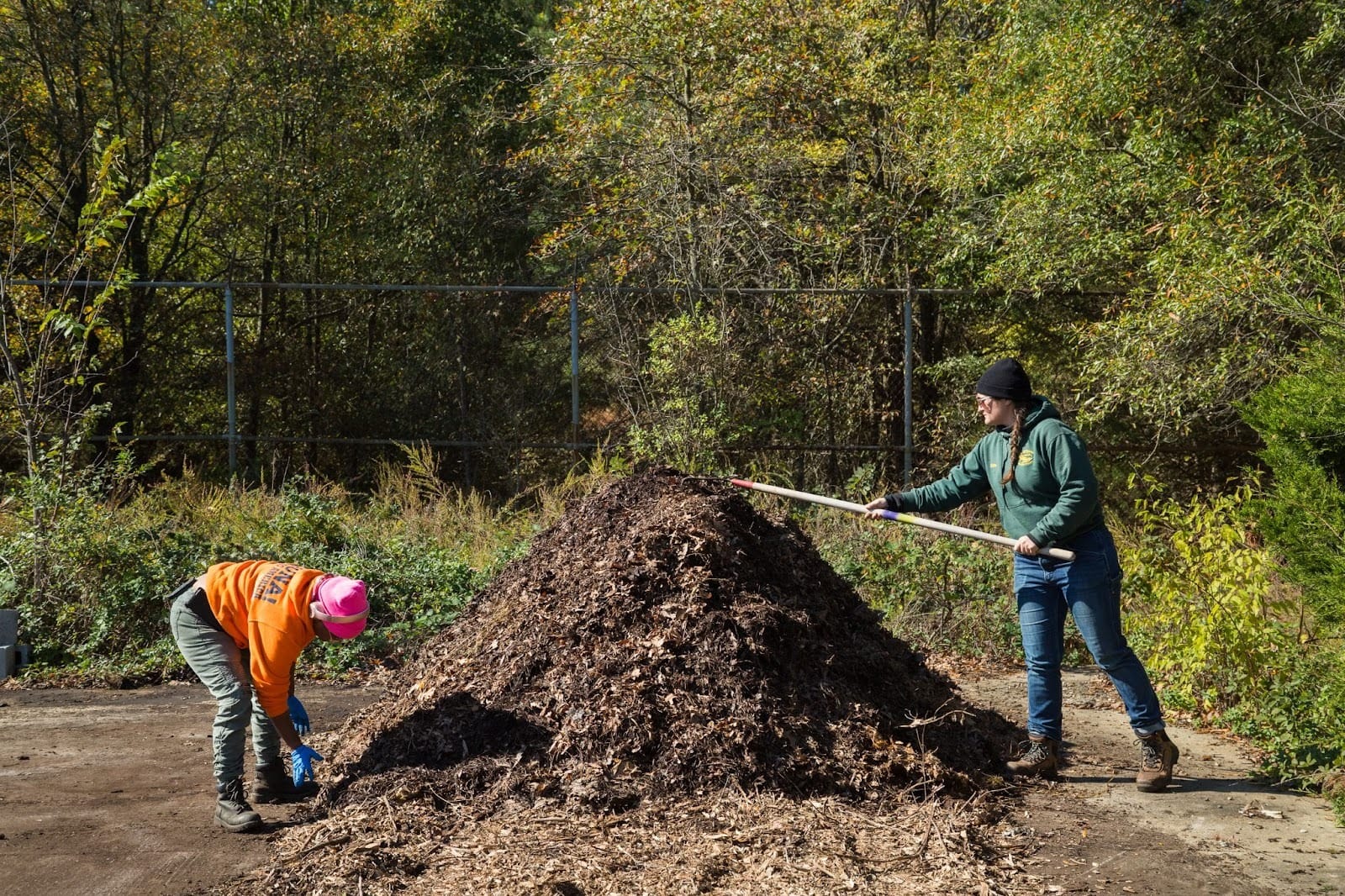
Humble origins
In 2020, Kate Rivara was working as the City of Richmond’s Community Garden Coordinator with the city’s Department of Parks, Recreation and Community Facilities (PRCF). As she observed composting efforts in the gardens she oversaw, she identified it as an area for improvement — the few gardens that were trying to mix compost weren't getting a product suitable for use in garden beds or other plantings.
Rivara reached out to Mark Davis, owner of Real Roots Food Systems, to help her create a concept for a city-run composting program. They applied for a grant from the USDA in 2020 to start the program which was denied.
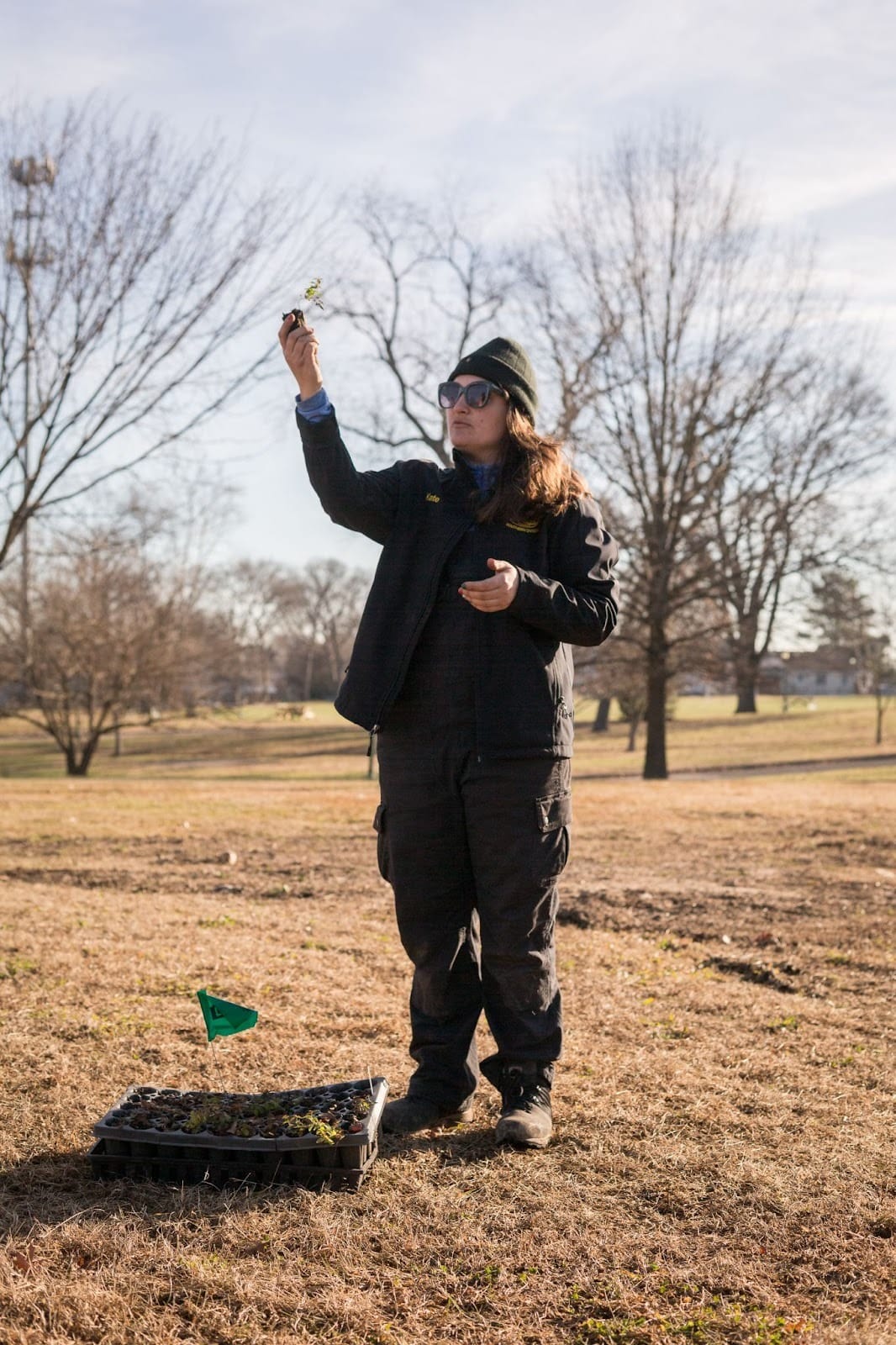
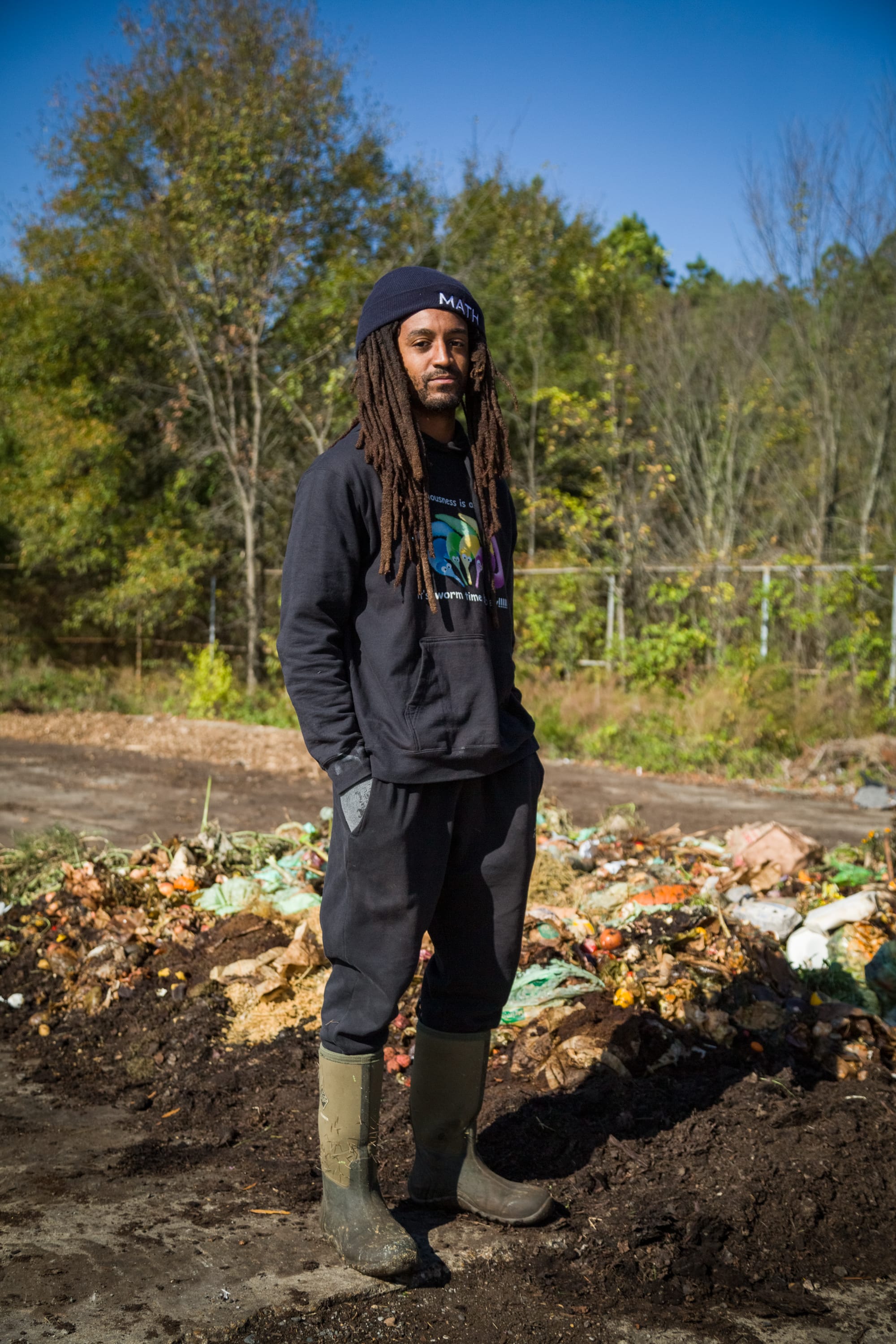
Not to be deterred, Rivara remixed the grant application the following year. She reached out to Katrina Entzminger and Torrence Robinson with the City’s Department of Public Works to brainstorm a partnership with PRCF to run the program.
The resulting concept added in-kind donations from DPW in the form of a site to produce the compost at Whitcomb Court, a skid steer to mix the compost, work hours of DPW employees and the service of a DPW truck to pick up the green and purple compost carts from 22 sites each week (the colors of the compost carts were chosen by Rivara).
PRCF employees and City Workforce Development employees rounded out the labor needed to produce the compost on-site, and Davis was contracted to contribute his knowledge of the production process and help fine-tune the program.
The program was tweaked over time, its final form relied on windrows — long rows where composting inputs (browns and greens) were mixed, tarped, and left to cook (as microorganisms break down the input matter, heat is created). Finally, the compost was then sifted to create a fine product.
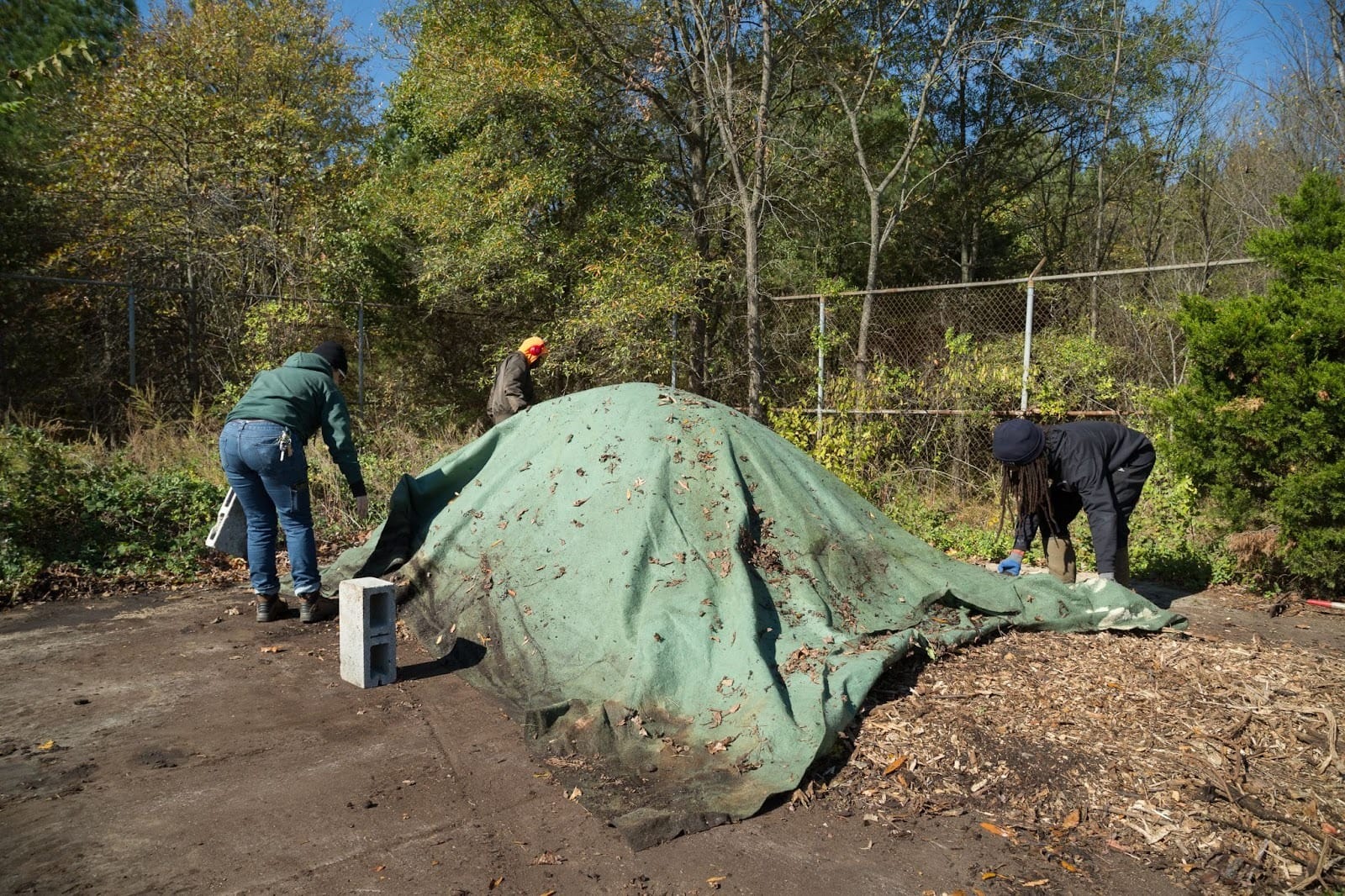
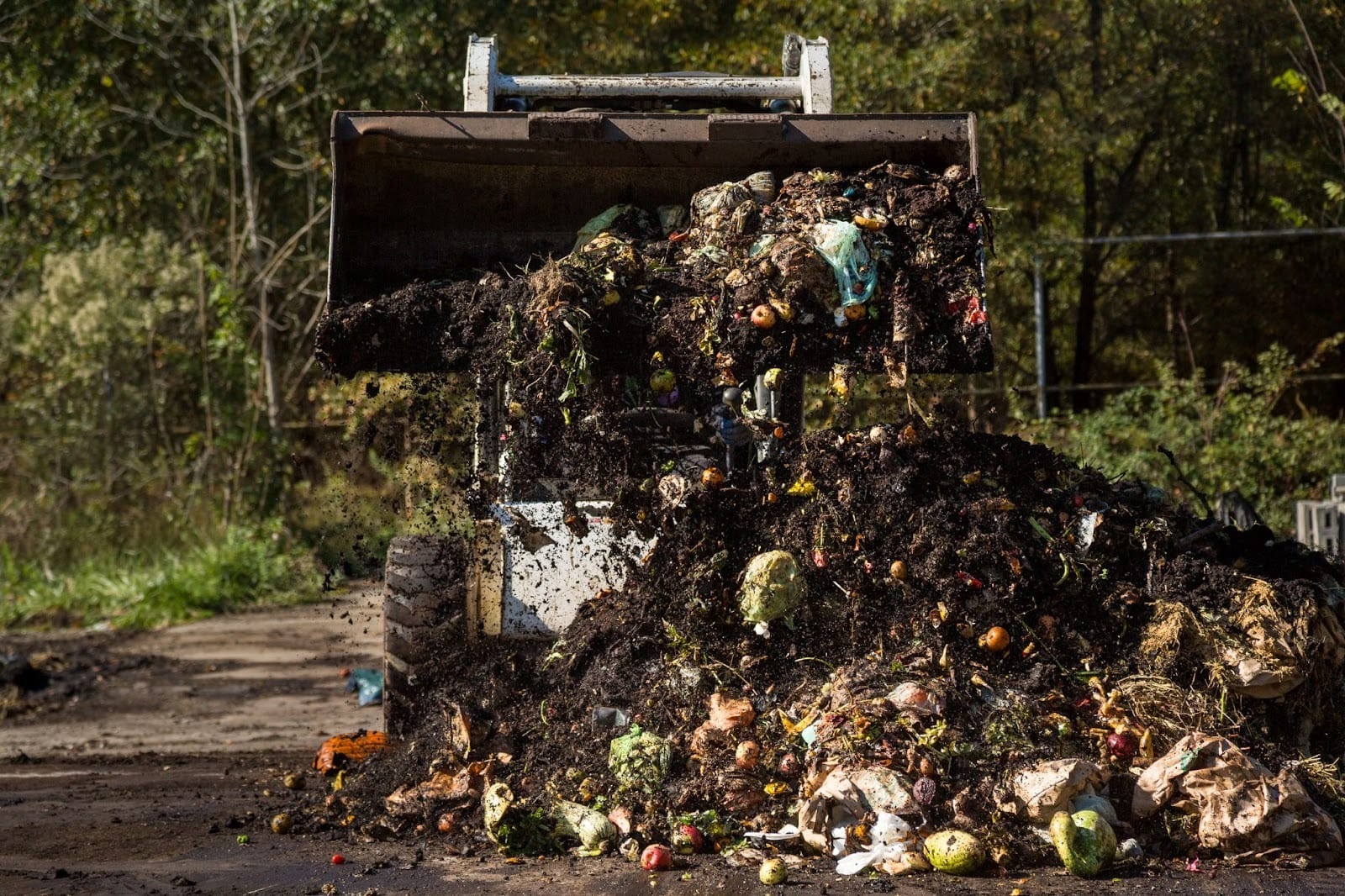
By the numbers, the city embraced the program: residents contributed approximately 219,431 pounds of organic matter to the purple and green carts in 2023, and 278,243 pounds in 2024.
The finished compost was delivered to community gardens and other sites that hosted compost drop-offs, and was also used in city plantings. From June 2023 to May 2024, 176 cubic yards of finished compost was produced and delivered.
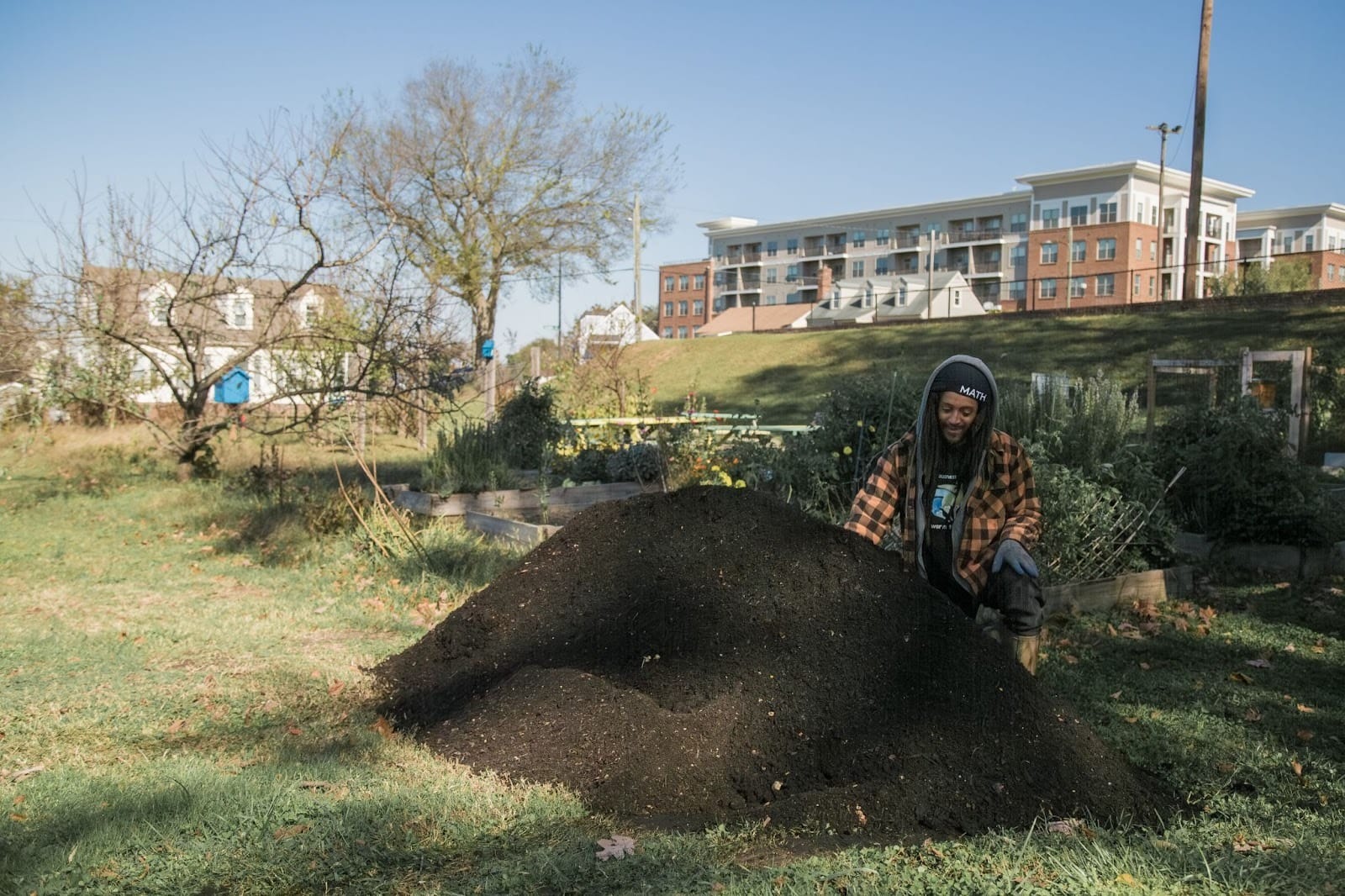
Running out of money
Having exhausted the USDA grant in April 2022, the city composting program was running on a shoestring budget, and the in-kind labor from PRCF and DPW were hitting a ceiling amidst a growing program. With no new funding to keep up with the increasing amount of contributed food scraps, from grants or otherwise, a shift was needed.
An expanded citywide composting program is called for in RVAgreen 2050, the climate action and climate resilience plan that lays out a roadmap for Richmond to reduce greenhouse gas emissions 45% by 2030 and achieve net-zero greenhouse gas emissions by 2050.
RVAgreen 2050 lays out a future where compost is accepted at all city-owned buildings, parks, facilities, commercial buildings and events, and includes a curbside pickup, prioritizing frontline communities. To get to this point, the city needs to scale up the volume of food scraps it is collecting and see increased buy-in to make those goals attainable.
“I think once we get a more balanced participation, like we're reaching anybody and everybody that could possibly have an interest in food waste, then I think we could look at more saturation within the community and and maybe even curbside,” said Katrina Entzminger, Senior Management Analyst with the Department of Public Works.
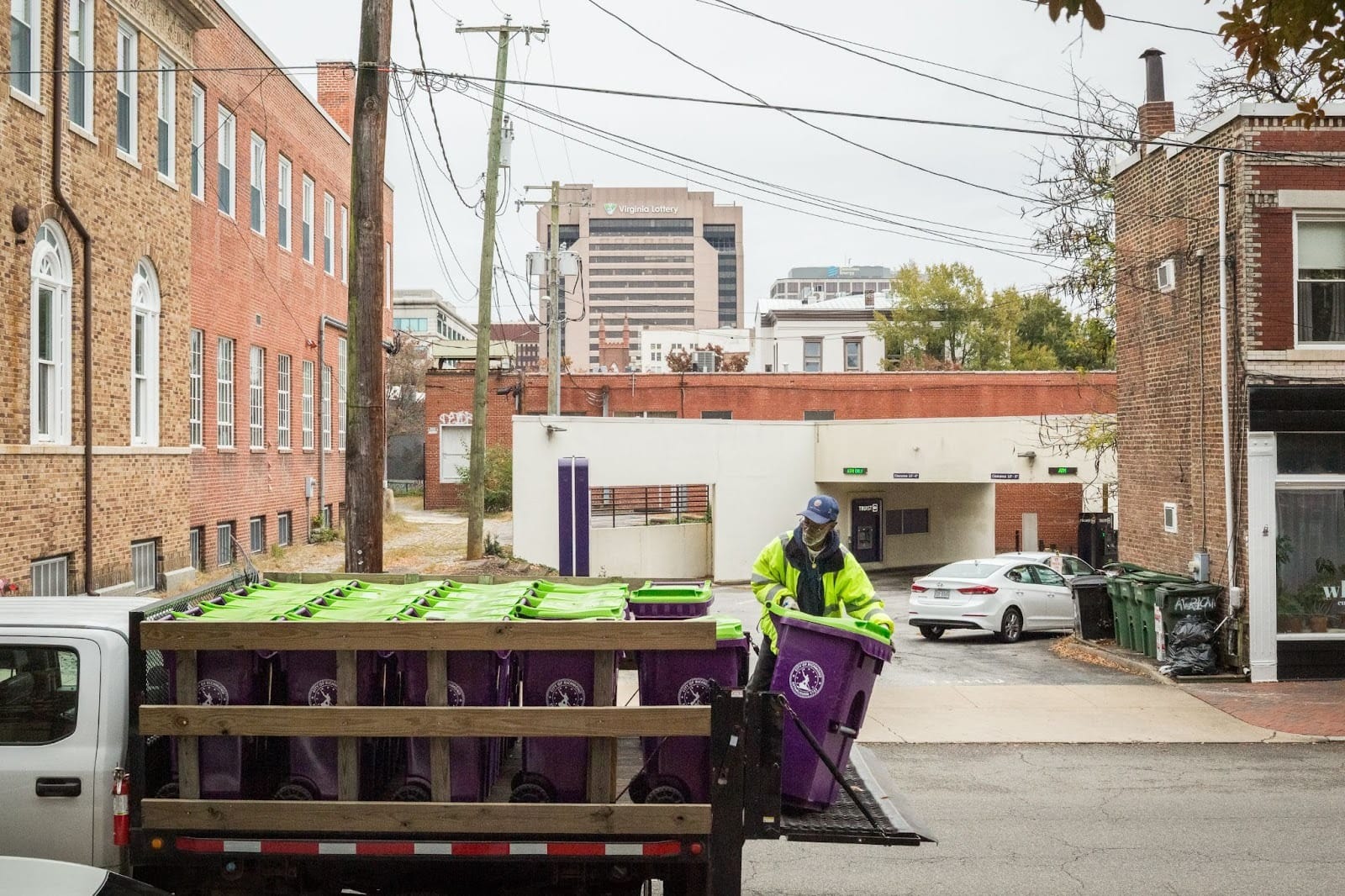
Recycling group adds composting services
In the fall of 2024, CVWMA began facilitating compost pickups from two sites in Henrico County, which started as a way for residents to compost their halloween pumpkins.
Envisioning a regional initiative which serves additional localities in its portfolio, CVWMA approached the City about joining the program. With the city-run initiative reaching its financial and personnel limits, signing on to the program was a logical next step, and puts the food waste aspect of waste management back under the umbrella of DPW.
“We've been kind of cheerleaders for what the city was doing with their program for years, since it started. And we really, really applaud the work to reduce the amount of food waste that was going to the landfills and put it to a good use in the community gardens. So I think that given our history with the City of Richmond on solid waste planning on the curbside and the drop off recycling program, it kind of made sense that we could maybe help take the program to another level.” — Julie Buchanan, Public Relations Coordinator with CVWMA.
The program is facilitated by a contract with NOPE Compost Co., a local company founded in 2009 which specializes in the proper handling and logistics of compostables. Coincidentally, NOPE Compost ran a composting program at the 2015 UCI World Road Cycling Champsionships in Richmond.
In the regional initiative, which Richmond and Chesterfield County have signed onto in addition to Henrico, Nope Compost is the entity picking up and transporting waste contributed to the compost bins.
That waste will now go to one of two industrial composting facilities: McGill Environmental Systems in Waverly or Panorama Paydirt in Earlysville. These facilities have much larger footprints than the city initiative, more sophisticated technology, and meet specific regulatory requirements that allow them to process a wider assortment of items such as meat, bones, and compostable cups and serveware made from biopolymers, bamboo or plant fibers.
According to McGill, their annual compost processing capacity “is 10 times that of a windrow operation with the same footprint.”
Little-known fact: biodegradable serveware will not become compost in a landfill, they will break down and release methane since landfills lack the finely tuned levels of heat, types of microbes, and amount of moisture that are necessary to produce compost.
To Katrina Entzminger, the increase variety of waste that can be diverted to the new program is a boon to DPW's operations.
“I'm super excited about the expansion, because now there are so many more items that can be added in that people will put into the bins," she said. "From a DPW standpoint, from an operations standpoint, it's just more stuff that is being diverted from the landfill. It's just not going to be forever that we'll be able to just bury stuff in the ground.”
An app, Betterbin, allows residents to search whether specific items are compostable (unfortunately, Chipotle bowls aren’t compostable). Visit CVWMA’s website for more information, including the sites where you can drop off food scraps.
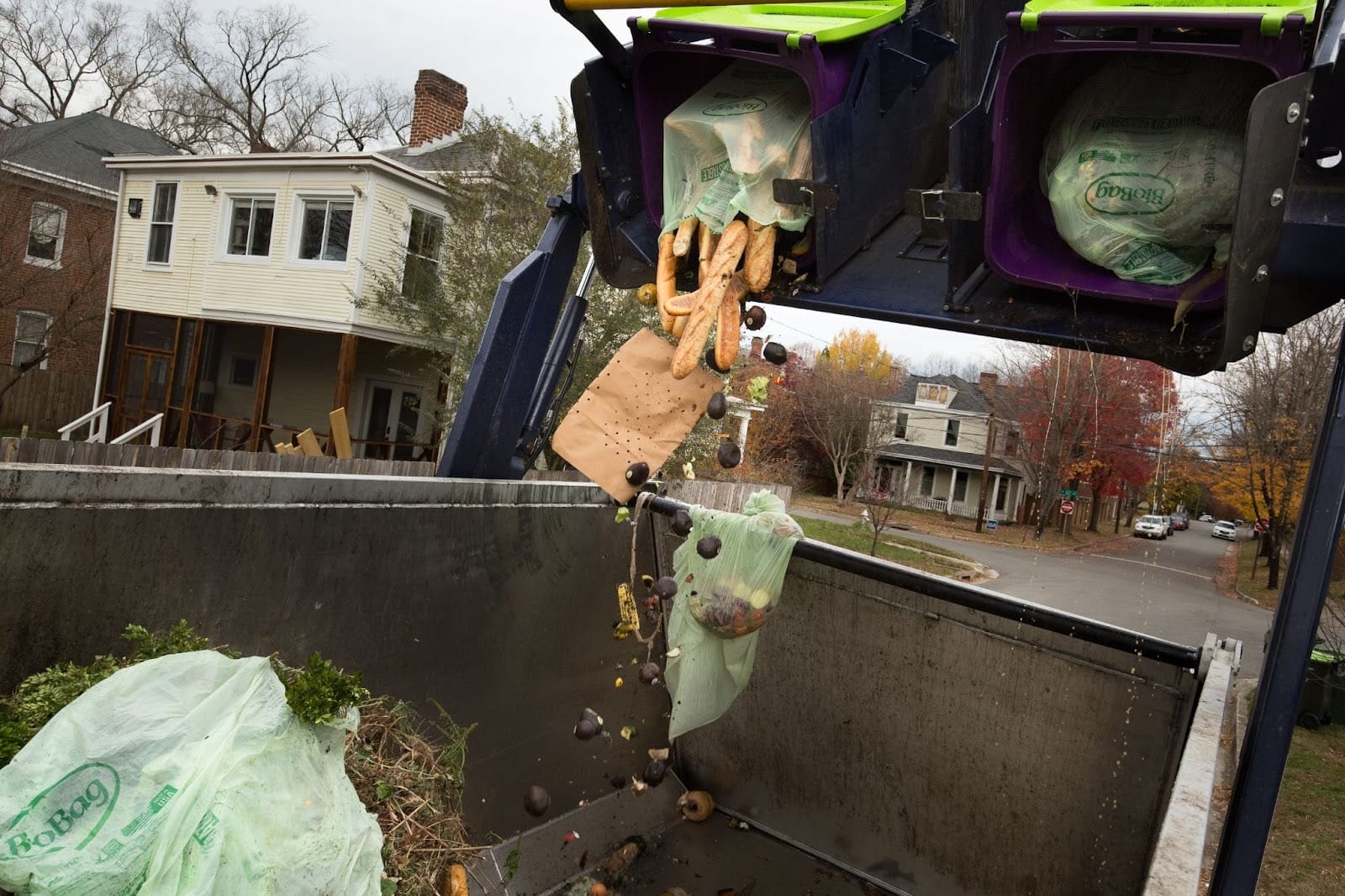
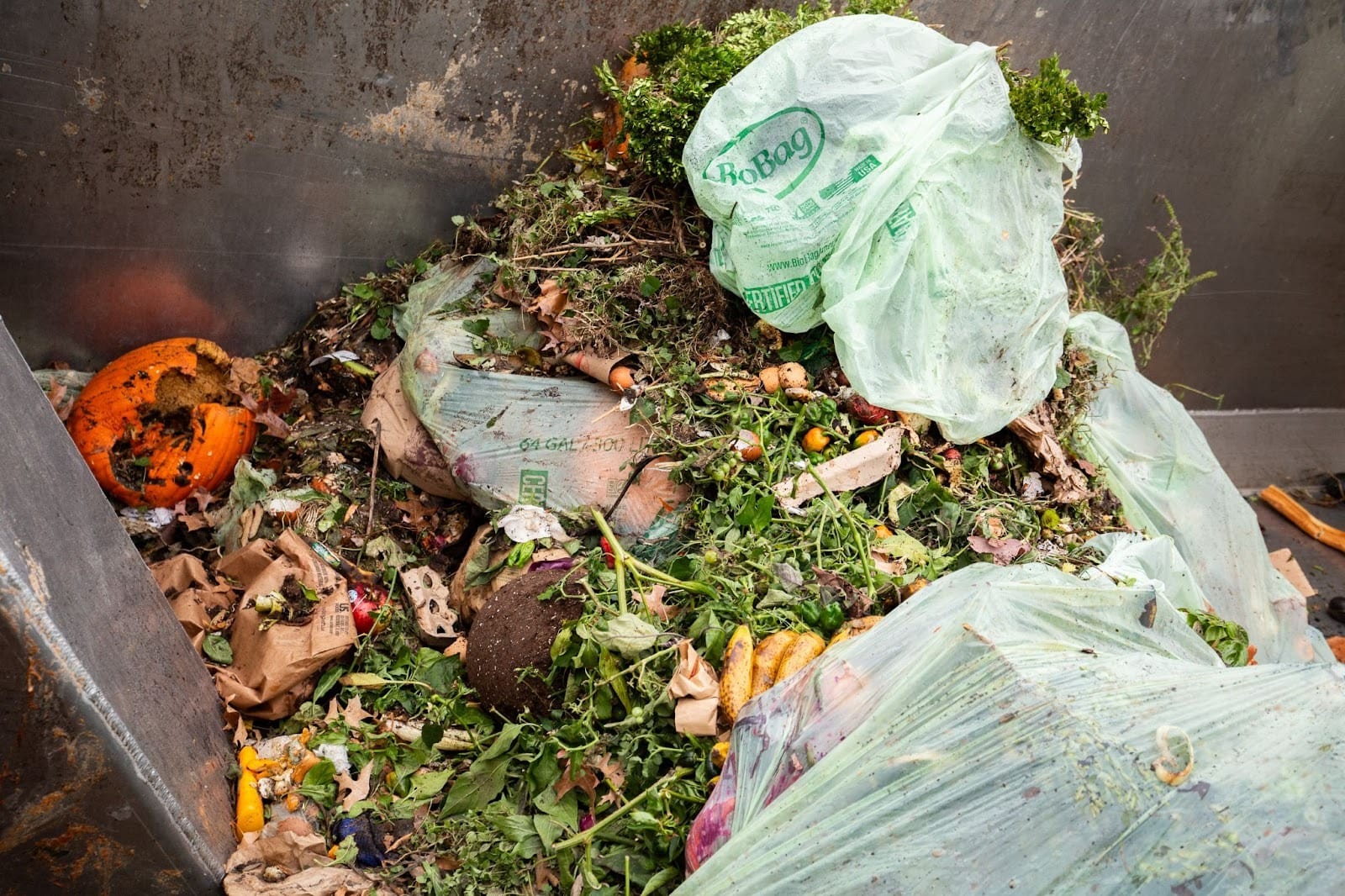
In addition to the increased assortment of compostable food items, the regional program diverges from the city initiative in a few other ways. The number of drop-off sites has decreased to 18 to streamline the pickups for NOPE Compost. The original 35 gallon purple and green compost carts have been replaced with 65 gallon carts in the same colors (the color scheme is also being used in Henrico and Chesterfield counties).
One downside to the new arrangement is that instead of all of the compost produced from residents’ contributions being returned to community gardens and other local destinations, the city will now only receive one cubic foot bag of finished compost for every ton collected.
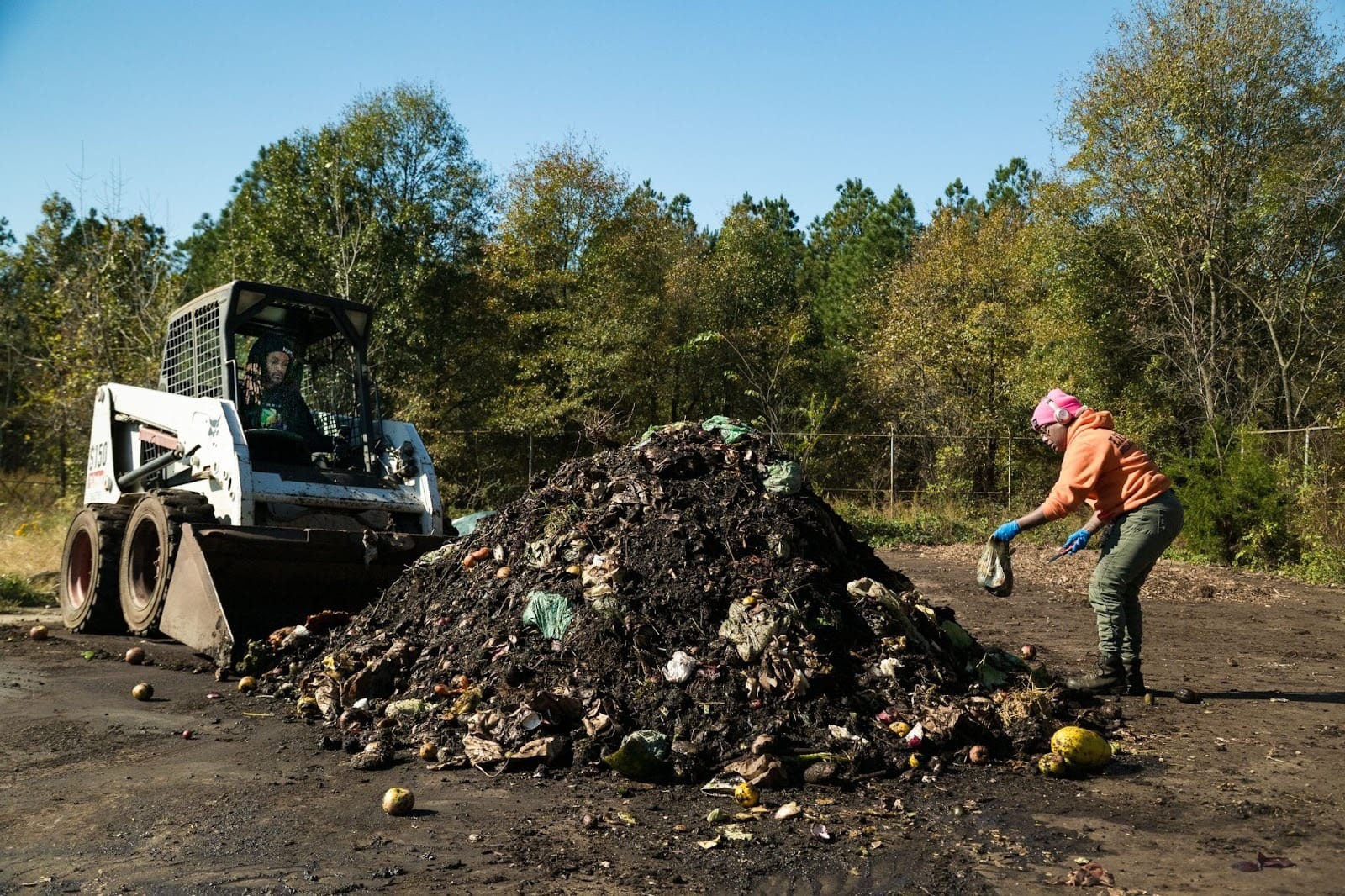
The city composting program is still making compost in its existing windrows, which should last PRCF for their needs through spring of 2026. Though the transition to the regional initiative is a logical step, the end of the city-run initiative is bittersweet to Rivara.
“It was like Christmas, a very gross Christmas every week, right? Some of the contamination was surprising. And sometimes, you know, organic matter might have included somebody's diary that was pretty juicy. So it was really interesting week after week," she said. "It gave me this really intimate look into these different, like, where these carts were coming from, and so it was gross, but like, really enjoyable.”
Note: This article has been updated with new information about the program.



